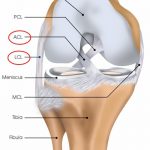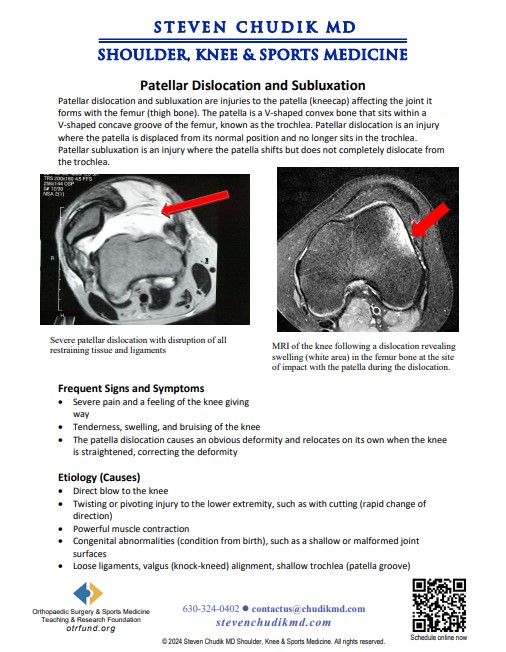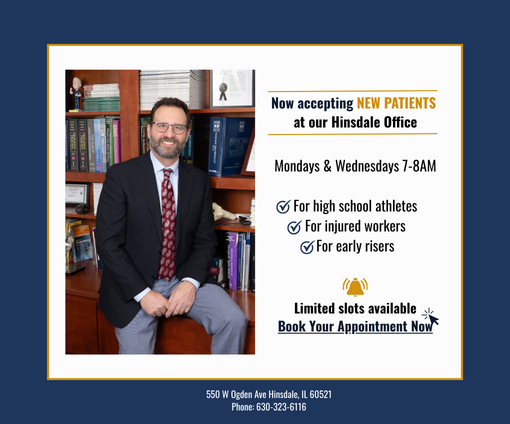 New functional capacity evaluation for ACL injuries definitely tests likeliness for re-injury and readiness to return to sport
New functional capacity evaluation for ACL injuries definitely tests likeliness for re-injury and readiness to return to sport
Home / Knee Surgeon Chicago Illinois / Knee Injuries and Conditions / Patellar Dislocation and Subluxation
Patellar dislocation and subluxation are injuries to the kneecap (patella) affecting the joint it forms with the thigh bone (femur). The patella is a V-shaped convex bone that sits within a
V-shaped concave groove of the femur, known as the trochlea. Patellar dislocation is a condition in which the patella is displaced from its normal position and no longer sits in the trochlea. Patellar subluxation is a condition in which the patella is not centered within the trochlea, but the joint surfaces still touch; thus the patella is not in normal relationship to the trochlea. This tends to occur in adolescents and young adults.
After immediate reduction (repositioning of the bones of the joint), treatment consists of ice and medications to relieve pain. Reduction can be performed without surgery, although surgery may be necessary to remove loose fragments of bone or cartilage caused by the dislocation or reduction or to help prevent further dislocation. Elevating the injured knee at or above heart level helps in reducing swelling. Your doctor may drain the blood from your knee.
Immobilization by splinting, casting, or bracing without immobilization for up to six weeks is may be recommended to protect the joint while the tissues heal. After immobilization, stretching and strengthening of the injured, stiff, and weakened joint and surrounding muscles (due to immobilization and the injury) are necessary. These may be done with or without the assistance of a physical therapist or athletic trainer.
Learn More
Content provided by Dr. Chudik not to be used for diagnosis and treatment. You can receive a proper evaluation and diagnosis by making an appointment with Dr. Chudik
 “Thanks for fixing my leg Doc!”
“Thanks for fixing my leg Doc!”
Dr Steven Chudik founded OTRF in 2007 to keep people active and healthy through unbiased education and research. Click to learn about OTRF’s free programs, educational opportunities and ways to participate with the nonprofit foundation.
1010 Executive Ct, Suite 250
Westmont, Illinois 60559
Phone: 630-324-0402
Fax: 630-920-2382
(New Patients)
550 W Ogden Ave
Hinsdale, IL 60521
Phone: 630-323-6116
Fax: 630-920-2382
4700 Gilbert Ave, Suite 51
Western Springs, Illinois 60558
Phone: 630-324-0402
Fax: 630-920-2382

© 2025 © 2019 Copyright Steven Chudik MD, All Rights Reserved.

